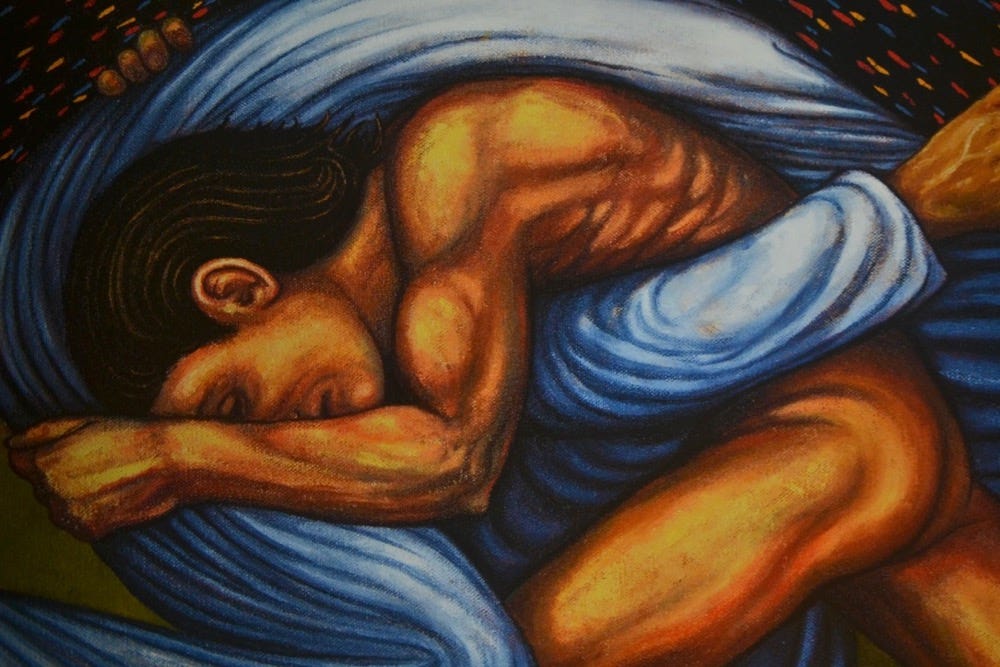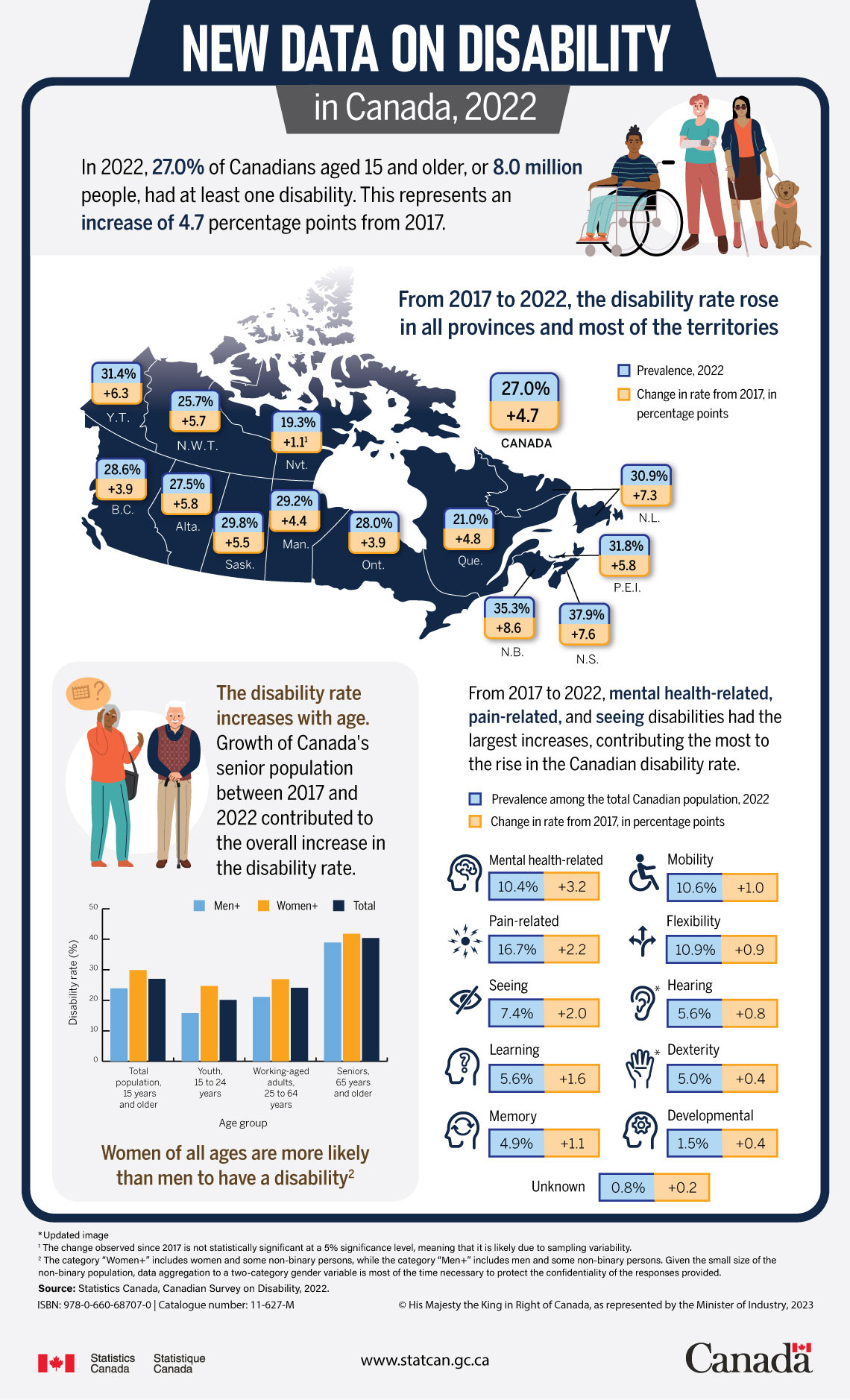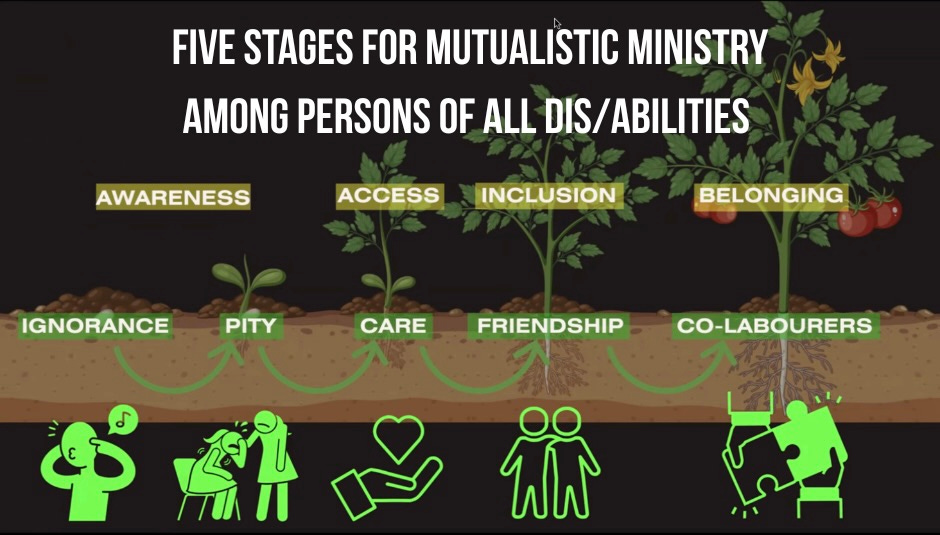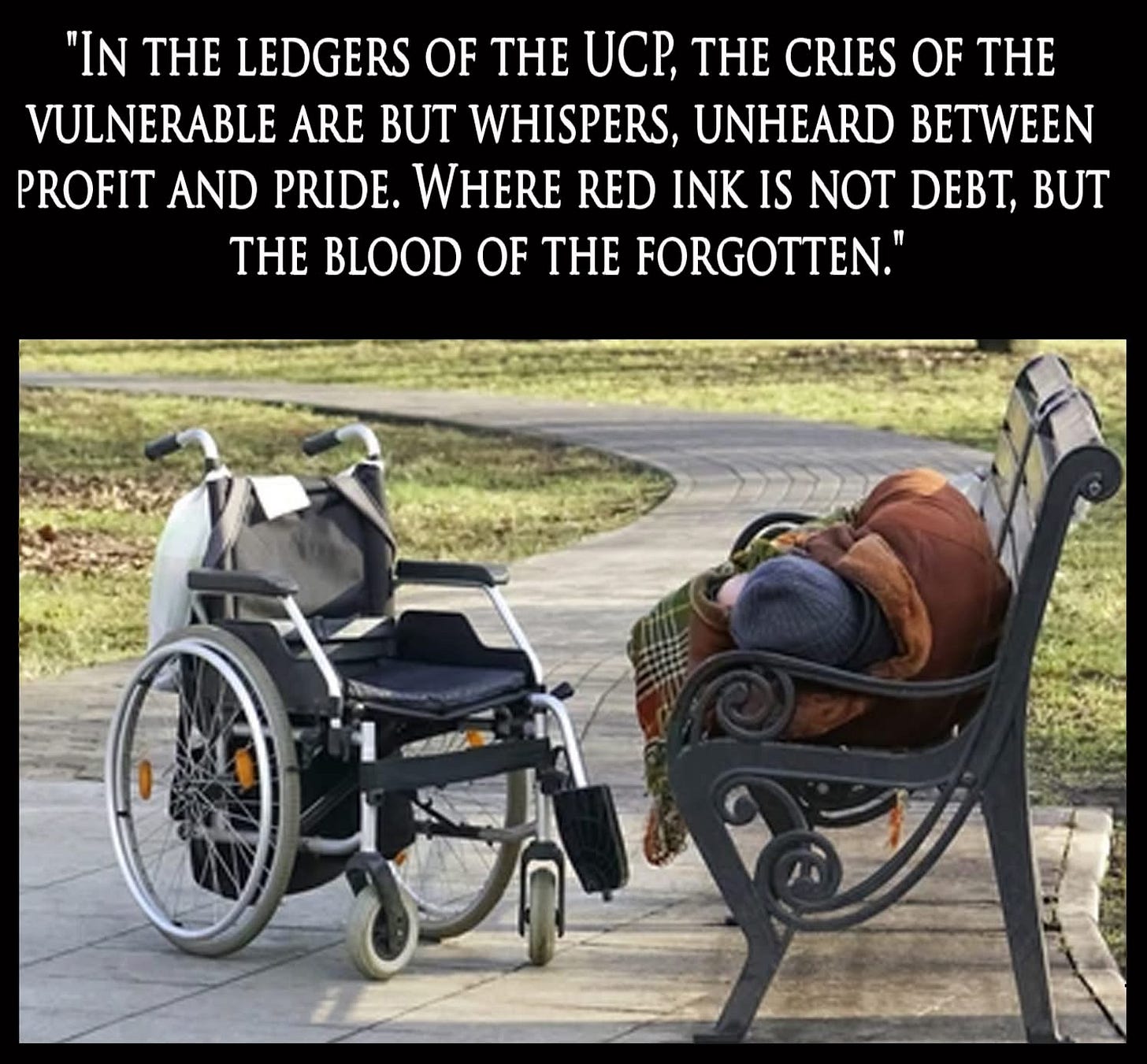Wrestling With MAiD
Pushing Beyond The Noise Of Polarized Whirlwinds & Firestorms Of Misinformation For Still Small Whispers Of Socially Just Active Relational Truths
“For our struggle is not against enemies of blood and flesh, but against the rulers, against the authorities, against the cosmic powers of this present darkness, against the spiritual forces of evil in the heavenly places.”
— The Holy Bible: New Revised Standard Version (Eph 6:12). (1989). Thomas Nelson Publishers.
Probably one of the most difficult and taboo subjects to talk about with family & friends — Death & Dying. Particularly, our human obsession to control its outcomes and perceptions of dignity. Over the last few decades, Canada has tried to approach these issues with the legalization of assisted suicide. A policy documented as MAiD - Medical Assistance in Dying.
Recently, my friend Ty Ragan, Psy.D. and I engaged in a conversation around the issue prompting a well written post he shared a few days ago he called ‘Can It Be Ethical?’ I must admit to you that my strengths do not lie in the field of historical articulation or outlining the legal descriptions of euthanasia policy. But he shares a great detail in the beginning of his post opening that story for us to hear in a different light and the descriptive Tracks that MAiD is outlined in.
Moving from this history, Ty reveals an underlying prophetic struggle that we as human beings, and Canadians particularly, are wrestling with when searching for moral and ethical responses to policies in euthanasia; one which after many years of wrestling with the issues myself, I have come to agree with. MAiD and the policies around assisted suicide are not an evil in themselves, but a present sign of the greater underlying losses of human dignity and socially entwined responsibilities to care for our neighbour as ourselves. Particularly, those who are disabled and in the marginal communities of our society. As Ty shares in his post:
There is challenges when we enter into control over one’s own end. There are belief systems, theologies, philosophies, long treatises and examples on suffering. There is reams of writing on when one chooses to end their own life around selfishness, around those left behind, around things [that] can [or could] change, the list can go on and on… What I propose, is how we limit the collateral and ancillary reasons one would seek out this medical procedure apart from condition. It creates a more ethical usage.1
In essence, we cannot wrestle with the inadequacies of constructing the perfect legal enactment or wrongs of MAiD’s policies by themselves or oppose them as the pivotal force behind injustice. We must be willing to address the deeper social injustices and evil’s that have led to the conditions in which marginalized individuals feel they have no other recourse.
Articulating some of those issues, Ty speaks towards the following social wrongs which have led Canada to this state:
As our world is more migratory, we have lost the ideal that everyone has loved ones in the same community, city/county, province or even country. Autonomy, and one’s individual rights, have become polarized in our identity and sense of well being. In some ways, we have been isolated to our own need of independence for so long by a multitude of reasons — culture, pandemic isolation, misinformation, and a systemic history of conforming ableism. To borrow the words from William Earnest Henley2, we have adopted a hyper-idealism that says:
It matters not how strait the gate,
How charged with punishments the scroll,
I am the master of my fate,
I am the captain of my soul.Other reasons one opts for MAiD are the feelings of being a burden, experiencing the loss of dignity, and living in poverty. How might we address these three streams of struggling in one’s well being?
Our understanding of personal limits and capabilities are not meant to be held to the false mythology & ideology of anything is possible if you just work hard enough for it — something which we as North Americans seem to struggle to live up to & believe about ourselves unrealistically. We are finite and created to find our fence lines strengthened not by expanding our own personal territory’s of greatness, and control over our own autonomy and authority. But by building inter-relational communities of vulnerable care and interdependence. What we perceive and falsely project as being burdensome should rather be a revealing of God’s glory in communally shared endurance and strength.3
Those in our society with disabilities also are often left behind in poverty with lack of social care and income. Alberta’s government alone has claimed a $8.3 Billion surplus in savings over the 2024/25 year.4 And yet it is the only Canadian province to claw back its AISH5 monthly payments from disabled recipients, effectively removing the CDB6 federal supports by 100% which was meant to assist those living below the poverty line.7 While having the means and federal supports to offer a universal or guaranteed income to those who are struggling in disability, the Alberta government chooses not to act or reverse its decision while also boasting of the possibilities in prosperous living. One has to ask, who exactly is prospering?! This should outrage our societies moral compass, and yet action towards change has yet to happen.
Change is then stifled by removing or muting the voices of advocacy by making their public and institutional presence to be considered irrelevant to the public eye. In an article written by Zachary Weeks called ‘Why Alberta’s Accessibility Report Was Hidden — And What’s Inside’, it is revealed that Alberta is one of two Canadian Provence’s that has no Disability Minister representative in the provincial legislature. Nor is there a provincial Disability Act in place to advocate for disability rights in Alberta. “It’s curious, isn’t it?” Zachary asks, “A government-commissioned accessibility report, repeatedly publicly referenced in the legislature, somehow never found its way into the hands of the very community it was written for — until someone filed a FOIP request. If transparency is a value, it shouldn’t require a legal form.” Perhaps it is a question all Albertans should be asking of their government representatives considering the disability community comprises of 27% of our population.8
The issues of social justice, accessibility, public health care and the decay of disability health needs in the health institutions is a continuing list of justice work that would extend long into the future of needed social reform impacting the dignity of disabled rights and the greater public. All of which influences marginal communities in understanding the significance of their lives and sense of belonging in society. Addressing all of these branches in which these prophetic works are revealed in our social and institutional systems would be exhaustive and resemble a Hydra of sorts in consequential dynamics.
But before moving into a question of how we might respond to these social justice issues and how it relates to an ethical or moral response to MAiD, I would like to add one more issue to our list of underlying causes or challenges that has not yet been brought up.
Despite there being a great deal of theological and communal representation and exploration into disability, there continues to be a chasm or significant divide between the nature and work of God in the world and the engagement and discipling pursuits of the Christian Church itself.9 While a large part of Canada’s demographics are in relationship to and with disability, the Canadian Church has very little to no representation in community leadership, interest in developing communal supports or leadership representation, or seemingly having any interest in the surrounding disability community itself. At most, the only interest has come at a compliance to legal building code or for some communities, a willingness to seek building structural accessibilities into the church building itself; often without consultation to local representatives.
These realities present two unavoidable consequences. The first is within the disabled community itself. Internally (both personally & in the greater church), the deeper question of understanding where disability comes from, its identity, and the significant role they have in embodying the gospel here and now today is lost without leadership representation or community discipleship. The second consequence is made visible through the cultural ableism that washes over into the church social ecosystem; first through the leaderships lack of theological discipleship, and then left to be blindly unchecked within the congregation as a whole. By the inaction of the church and its leadership, it looses the vision to be actively engaging injustice in its own local community and leaves the spiritual formation of heresies that form harmful cultural beliefs such as, “Wouldn’t it be better for them to be with Jesus.”
A few months ago, I took part in an online four part class looking at ‘Disability & the Church’.10 Greg Harris shared a prophetic vision into 5 stages in which churches could experience movement towards disability becoming a mutualistic discipleship within local community’s.11 As a means to reveal the gap between churches and the disabled community today, Greg asked a pointed question while showing the image below.12 As you pause to view it now, how might you answer this same question… Where is your church, leadership, or organization in the continuum of 5 stages for mutualistic ministries among persons of all dis/abilities?
The underlying issues and causes that lead to MAiD decisions can easily become overwhelming, as I am sure you may be experiencing here. And yet many disabled persons today cannot escape these issues or ignore the daily involvement they have with them on a constant basis. Compounded with the other issues of their disability itself, makes decision making and life management a constant stress and exhausting effort.
Perhaps we can now ask the significant question: How can we respond to these social injustices and make a moral and ethical change in the way MAiD decisions are made?
Recently I listened to a podcast episode on ‘No Small Endeavour: Exploring What It Means To Live A Good Life’ where Lee C. Camp spoke with Dan Heath about how to change what is not working.13 Throughout and over their conversation, Dan made a rather bold and pointed recognition to the fact that information alone is insufficient to spark change in any meaningful way.
Unfortunately, over the last several decades in the euthanasia and assisted suicide conversation, academia and the Church has seemingly focused their approach through theological and social debates and discourses around educational knowledge and information that directly addresses the issues of policies, legalities, and principles related to MAiD laws themselves. In doing so it neglects the prophetic work of flesh, sweat, and blood that is desperately needed to make any changes to the underlying issues leading to MAiD decisions.
Real change is sparked by emotion and sustained by motivation. We cannot let our struggles with institutional princes and principalities be simply head knowledge and education alone. We must connect deeper to our hearts and souls while doing the social work needed in the community to bring lasting and meaningful change to the underlying issues giving foundation to MAiD values and principles.
It is not individuals work alone that is needed either. We need independent communities, churches, and public institutions to rise up and make social activism a part of their worship and communal practices. We need people from corporate, small business, non-profits, volunteers and clergy members to educate and been publicly seen leading the frontlines of political and social rallies.
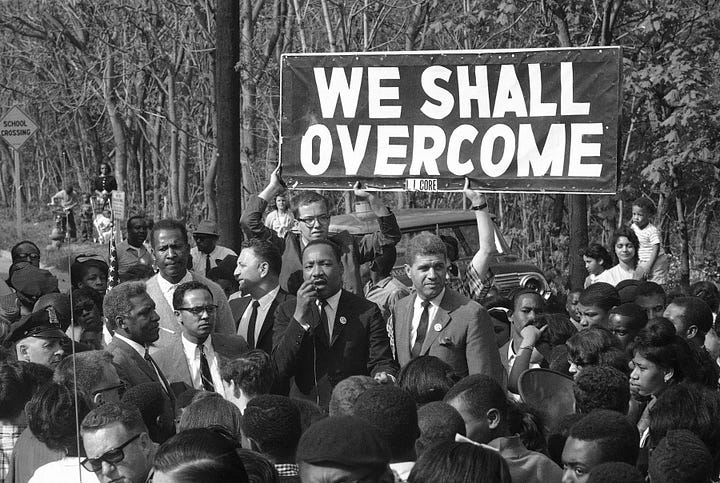
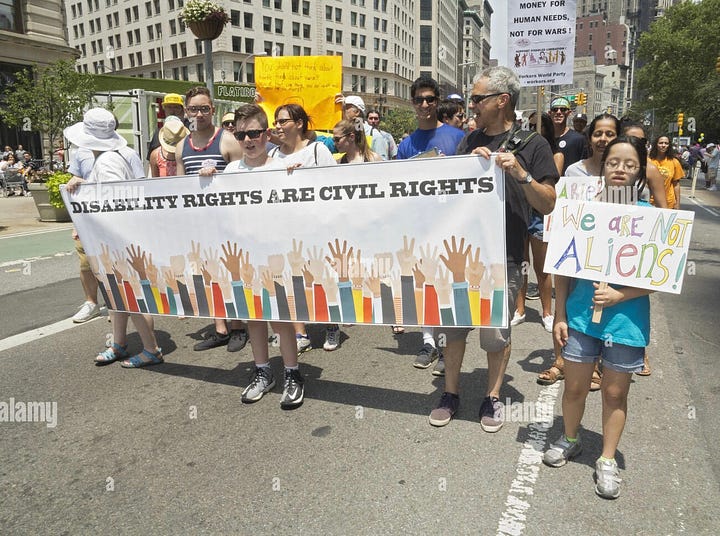
We need people who have an inside into government at the caucus level who can push buttons and advocate for institutional legal change while also protecting and safeguarding the legal rights and freedoms of disabled persons.
Without these greater actions happening in our communities, what remains is a continued fallacy and ignorance to think that we can inform people to change. Or worse, inform ourselves into change.
This can all seem rather overwhelming when looking at it from the macro level. So let me try to offer some simple steps of how we can take some actions ourselves in meaningful ways.
Look around in the places of complex systems around us were a little bit of investment or effort yields a disproportionate return. Where might you make some small changes for disabled persons in your place of work? In your neighbourhood? In your church? Or even, in your home? Perhaps, you might even invite a few others to join you in making these changes. There is a story in the gospels where the friends of a paralytic actually went as far as to rip the roof off of a local home in order that their friend could be included and belong!
Take the resources that we do have, re-stack those resources to have an impact upon those leverage places. Find out if there are grants available and utilize them for the changes you are trying to make. Fund raise and host community events to build towards fulfilling the needs many disabled in your neighbourhoods are experiencing.
Get out of the way! Sort out any ways “I” may be the problem, “I” may be inhibiting progress. Then, look for practical ways “I” can contribute to progress. Don’t just learn about disability, the social issues and theological understandings. Tell others, share about the local injustices that are happening in your social media, and join in local disabled initiatives. Perhaps most of all, get to know the disabled persons in your neighbourhood — listen to their story, discover the their super power in changing your life, see them and let them see you while getting to know that you care! Host disabled events in you church, community parks, and social centres while creating micro cocoons of inclusive transformation for beauty. These are the ways disabled persons can be seen and recognized as incredible and indispensable members to our neighbourhoods!
We must get close to the frontlines of the work being done around us. Simply giving money and applauding others efforts cannot really sustain lasting change. We must put ourselves in the visible range of others as involved in disability rights and freedoms. Volunteer in disabled organizations. Join social advocacy groups and be available for their activities and needs. Personally write your MLA and politicians about disability rights and the current issues.
Over the last few weeks I have been reading Sara Hagerty’s book ‘The Gift of Limitations: Finding Beauty in Your Boundaries’. Amidst sharing some of her own powerful story, she manages to reveal some incredible truths about our own limitations; even our disabilities. “We may not be able to choose our stories,” she writes, “but that does not mean we live without choices.”14
MAiD is a result of just one way of telling our story. But as I, and as we all, wrestle to understand its meaning and underlying reasons, we always have a choice to make. Waiting to long to make those choices or believing we have no choice is an illusion and lie of demonic proportions that affects not only our own rights and freedoms, but the rights and freedoms of others — particularly the marginalized and excluded. Nor can we hold judgement over those who feel they are unable to escape these underlying injustices that lead to such decisions of life and death.
It is true — We cannot do it all. But we can do it together! So I leave you with one last question to wrestle with… What choices will you make?
“Very truly, I tell you, the one who believes in me will also do the works that I do and, in fact, will do greater works than these.”
The Holy Bible: New Revised Standard Version (Jn 14:12). (1989). Thomas Nelson Publishers.
Ragan, Ty. “Can It Be Ethical?” Substack.com, A Monk’s Musings, 10 Aug. 2025, substack.com/home/post/p-170562397?source=queue. Accessed 12 Aug. 2025.
Henley, William Ernest. “Invictus.” Poetry Foundation, 1888, www.poetryfoundation.org/poems/51642/invictus.
John 9:1-12’s story of a blind man revealing God’s glory was less about his individual influence and impact on his society and more about the way the community is transformed through his being a part of their reality and story.
Farrell, Jack. “Alberta Posts Surplus of $8.3B in 2024-25 Fiscal Year.” CBC, 27 June 2025, www.cbc.ca/news/canada/edmonton/alberta-finance-minister-to-deliver-year-end-fiscal-update-friday-1.7572464. Accessed 12 Aug. 2025.
Assured Income for the Severely Handicapped
Canadian Disability Benefit
Bellefontaine, Michelle. “Alberta to Claw Back Federal Disability Benefit from AISH Recipients.” CBC, 26 Mar. 2025, www.cbc.ca/news/canada/edmonton/alberta-to-claw-back-federal-disability-benefit-from-aish-recipients-1.7493962. Accessed 12 Aug. 2025.
It was a US based CBS Report on the forced institutionalization of disabled citizens called ‘No Place Like Home: People with Disabilities' Fight to Stay Out of Institutions’. But as I shared in this social post in August 2025, this is also a rising trend for Alberta and Canadian provinces. The lack of government advocacy for disabled citizens and the willfully imposed public invisibility of disabled communities dangerously strips the dignity of our population making MAiD even less of a choice then a forced compliance to social ignorance. — https://www.facebook.com/share/p/16wyvBqCqm/
I would like to expand the conversation in this issue to include all religious traditions. However, for this post I will keep the focus on Christian traditions for the readership.
Learn more about the classes here on Northwestern College & Seminary’s website: https://nbseminary.ca/disability-and-the-church-start-here/
See a greater description of the 5 stages here: https://www.the5stages.com/wp-content/uploads/2013/10/The5Stages_2014.pdf.
Catch all of Greg Harris’s talk on my friend Michael Morelli’s podcast: Personalist Manifesto(s). He is currently sharing all four classes discussing ‘Disability & the Church’. See more here: https://www.youtube.com/@PersonalistManifestos
No Small Endeavour Podcast with Lee C. Camp. “Dan Heath: How to Change What’s Not Working.” Apple Podcasts, 11 Aug. 2025, podcasts.apple.com/ca/podcast/no-small-endeavor-with-lee-c-camp/id1513178238?i=1000721492070. Accessed 14 Aug. 2025.
Hagerty, Sara. The Gift of Limitations: Finding Beauty in Your Boundaries (p. 40). (Function). Kindle Edition.



